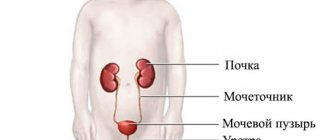Diagnosis: “adulting crisis”
But hysterics do not go away in a day or a week. Then moms and dads get angry and look for reasons for disobedience in the little one’s bad character, and conduct an audit of upbringing methods.
Real panic begins when neither the stick nor the carrot method works with the child. By this point, parents are mentally at their limit. They are torn by mixed feelings when anger, tears and irritation border on growing anxiety for the health and future of the baby.
Here, many adults turn to pediatric neurologists for help. And this is correct, since behavioral deviations can be a sign of diseases of the nervous system and more. But it is more likely that the doctor will examine the child and reassure the parents by making a “crisis diagnosis.”
Doctors say that a child’s three-year crisis is a stage of growing up necessary for his full development. And you need to worry more quickly when a baby at this age is phlegmatic, submissive and lacking initiative.
How to behave correctly to simplify interaction and education?
Mom, dad, and older relatives will have to use maximum tact and attention, while not unnecessarily pampering the baby, but also not excessively limiting his actions.
What to do when there are manifestations of negativism?
Negativism is the desire to do the opposite .
During an emotional outburst, it is useless to explain something to a three-year-old; he simply will not accept the words of an adult. First of all, adults have to learn to remain calm. Play and gentle communication will smooth out outbursts of anger.
If the child doesn’t want to eat, you can sit a doll next to him and “feed” him. The advantage of negativism is that the child has his own opinion. In this case, it is impossible to punish; it is better to give the right to choose.
How to survive obstinacy?
Obstinacy is directed against the norms of education and the established way of life . If such a symptom appears, this is a reason to think about changing the social situation around the child.
Adults need to stop doing for the child what he is capable of doing himself. It's time to learn how to button clothes, undress, and perform simple tasks around the house.
How to deal with stubbornness?
A child insists on something because he has made his own decision. If for some reason it is impossible to fulfill his desire, then you need to calmly explain why.
For example, a child in a store asks for a car. We need to tell him that now mom doesn’t have the money to buy such an expensive thing. It is necessary to explain calmly, in a language accessible to the child.
Overcoming self-will
The positive side is that independence is being formed . Constant prohibitions will either cause a violent reaction or create a lack of desire to do something yourself. Therefore, parents need to encourage the natural desire for independence.
Protests and riot
Riot and protest are a state directed against the surrounding world. Has a high level of energy, allows the child to complete what has not been done. Teaches independence and achieving goals. It is necessary to support the child’s desire to do what is not possible, gently guiding and helping, but not completely performing the actions for him.
What to do in case of depreciation
The child begins to swear at his parents and tease them .
He wants to become the author of his life and ceases to be subordinate. This does not mean that adults should welcome it. It is necessary to show that it is necessary to show respect to elders and to develop willpower.
Socialization is of great importance - communication with other children and adults.
Despotism
Difficult behavior when a child tries to force others to do what he needs, to subjugate everything to himself. Such behavior must be stopped , otherwise the child may become completely uncontrollable. Despotism can also manifest itself in relation to specific family members if it understands that they are easy to manipulate.
The positive side is the formation of willpower. The child learns to stand his ground, to subjugate the world around him.
There is a danger of the symptom manifesting itself in relation to a younger brother or sister. In this case, it is necessary to explain to the child that all children are equal, they have the same requirements for behavior and conditions. You can’t pamper a child too much, indulge all his desires; some restrictions are also needed so that the baby understands that not everything is allowed to him.
The child is looking for himself
Psychology calls special stages of personality development an age crisis. These periods are characterized by sharp mental changes. Many experts agree that without such changes it is impossible to form character, one’s “I”.
Throughout life, a person goes through a number of such moments. One of the most famous is puberty or the so-called “teenage” period associated with puberty. There is a crisis of newborns, thirty-year-olds and even retirement.
But it is the crisis of three years that is considered one of the most difficult. This is a kind of equator between early childhood and preschool age. During this period, the baby gets to know his “I” and learns to manage it. He separates from his parents and builds new relationships with them. This stage is also conventionally called “I am myself” or the stage of obstinacy.
Some experts compare the behavior of a child during a three-year crisis with the behavior of a novice driver. The first time after receiving a driving license, a newly minted driver is careful, follows the rules, and listens to the experience of experienced drivers. But very soon he gets used to it, and the feeling of fear dulls: the driver begins to drive recklessly, trying to try all the capabilities of his car and prove himself behind the wheel.
Seven-star crisis 3 years article (junior group)
The crisis of three years is one of the most famous and studied crises in the development of a little man. And this is good: you can find a lot of information, learn different points of view, and carefully prepare for such a period in your baby’s life. The crisis of three years for children is an extreme manifestation of protest against everything that surrounds them. The child often does not understand what exactly does not suit him, and suffers from his own behavior, but cannot help himself.
By the time your baby gets ready to celebrate his third birthday (or even better, six months earlier), it will be useful for you to know the whole “bouquet” of signs that determine the onset of this crisis - the so-called “seven stars”.
1. Negativism In a general sense, negativism means the desire to contradict, to do the opposite of what one is told. A child may be very hungry, or really want to listen to a fairy tale, but he will refuse only because you or some other adult offers it to him. Negativism must be distinguished from ordinary disobedience. After all, the child does not obey you not because he wants to, but because at the moment he cannot do otherwise. By refusing your offer or request, he “protects” his “I”.
2. Stubbornness Having expressed his own point of view or asked for something, a little three-year-old stubborn person will stick to his line with all his might. Is this how he wants the “order” to be fulfilled? May be. But, most likely, he doesn’t really want to anymore, or has long since stopped wanting to. But how will the baby understand that his point of view is taken into account, that his opinion is listened to, if you act in your own way?
3. Obstinacy Obstinacy, in contrast to negativism, is a general protest against the usual way of life and the norms of upbringing. The child is dissatisfied with everything that is offered to him.
4. Self-will A little self-willed three-year-old accepts only what he has decided and conceived himself. This is a peculiar tendency towards independence, but exaggerated and inadequate to the child’s capabilities. It is not difficult to guess that such behavior causes conflicts and quarrels with others.
5. Depreciation Everything that was previously interesting, familiar, and expensive is depreciated. During this period, your favorite toys become bad, your affectionate grandmother becomes nasty, your parents become evil. The child may begin to swear, call names (old norms of behavior are devalued), break a favorite toy or tear a book (attachments to previously dear objects are devalued), etc.
6. Protest-revolt This state can best be characterized by the words of the famous psychologist L.S. Vygotsky: “The child is at war with those around him, in constant conflict with them.”
7. Despotism Until recently, an affectionate child at the age of three often turns into a real family despot. He dictates norms and rules of behavior to everyone around him: what to feed him, what to dress him in, who can leave the room and who is not allowed, what to do for some family members and what for the rest. If there are more children in the family, despotism begins to take on the features of heightened jealousy. After all, from the point of view of a three-year-old toddler, his brothers or sisters have no rights at all in the family.
The above features of the three-year-old crisis can plunge many happy parents of babies or two-year-olds into confusion. However, everything is, of course, not so scary. When faced with such manifestations, you must firmly remember that external negative signs are only the other side of positive personality changes, which constitute the main and fundamental meaning of any critical age. At each period of development, a child has completely special needs, means, and ways of interacting with the world and realizing himself that are acceptable only for a given age. Having served their term, they must give way to new ones - completely different, but the only ones possible in the changed situation.
How to survive a three-year crisis
The crisis of three years usually lasts several months, then successfully passes on its own, however, parents are advised to adhere to certain rules in order to protect themselves and the baby from unnecessary worries at this time.
Rule one: encourage your child’s independence. If a child wants to do something on his own, there is no need to offer him help or try to control his actions. This will make him even more irritated. It is better to simply ensure his safety while performing the task and praise him when he finally succeeds. To avoid constant whims on the part of the baby, before helping him with something, you can ask: “Are you going to do this yourself or do you need help?”
Rule two - if you scold your child, do it only for an offense! You cannot call a child such words as greedy, fool, stupid, stupid, harmful, because he really can become like that. You can only scold for a wrong action, but in no case should you criticize the child’s personality. It’s better to say “You did something bad” rather than “You’re so mean!”
Rule three - stay calm! The calmer you react to your baby’s antics, the less desire he will have to annoy you. Screaming and swearing provoke the child to become even more irritated and defend his opinion, so you need to pull yourself together and respond calmly, even if the child behaves disgustingly.
Rule four - give your child the right to choose. The crisis period for children goes much calmer when parents take into account their opinion. Let the baby decide for himself whether he will have breakfast, which cartoon he will watch from the ones you suggest, and which playground you will go with him during your walk.
Rule five - analyze the situation. After every tantrum thrown by your child, talk to him. It is better to do this when the baby calms down a little. Explain to your child why his behavior upsets you and ask him to share with you the feelings he is experiencing so that together we can find a way out of the situation.
Rule six - just love your child! Despite all the ugly actions, you will still love your baby, so do not forget to remind him of this. Even if the baby calls you names, shouts that he doesn’t love you, don’t get angry, but answer him that he is still the most beloved and dear to you.
The task of a parent during a crisis of three years is to help the child survive a difficult period, so look for the positive sides in everything, because all these age-related manifestations will help the child learn such important qualities as perseverance, patience, independence and determination.
Materials used:
https://www.ya-roditel.ru/parents/base/experts/kak-spravitsya-s-krizisom-trekh-let-u-rebenka/
https://ds43nn.edusite.ru/p34aa1.html
When will the crisis begin and how long will it last? 3 years
The three-year crisis does not necessarily manifest itself clearly at three years. Much depends on the individual characteristics and potential of the child. Some mothers noticed crisis conditions as early as two years old. This happens so early if the child begins to speak quickly. But more often the crisis occurs between the ages of two and a half and three and a half years.
The exact dates of the beginning and end of the crisis cannot be fixed, since the situation is developing progressively. And only in the middle of the journey does a sharp exacerbation of crisis symptoms occur.
How long does the three-year crisis last? And there will be no specific answer here. Observations show that a capricious person can improve in just five to six weeks, or he can “play” on his nerves for a whole year.
The problem is so urgent that in preschool educational institutions, psychologists and educators even conduct thematic consultations for parents. There are also special sites for psychological help, where you can consult with specialists about your child’s behavior via virtual communication.
Video on the topic 7 main signs of a child crisis 3 years old
Why is it important to know the rules of behavior with children 3 years old during a crisis?
This is a special period in a child’s life, relatively short, but causing some inconvenience to parents.
Characterized by significant changes in mental development . There is no exact date of onset, that is, this does not mean that as soon as the baby is three years old, a difficult period will immediately begin.
The development of each child follows an individual plan. Depends on the characteristics of the psyche and upbringing. A crisis occurs in the period from 2.5 to 3.5 years. Its duration also varies individually, but usually by the age of 4 the difficult period passes.
A crisis is a growing up, a restructuring of the psyche of a little person. The severity of emotional reactions and the duration of the period depend on temperament, relationships with parents, in particular, whether the child has trust in them, the type of upbringing (authoritarian, permissive, etc.), mental development.
Psychologists believe that the more authoritarian relatives behave, the more pronounced and acute the crisis becomes. At this moment, the baby's behavior changes dramatically. The phrase “I myself” appears. There are also desires: “I want” or “I don’t want.”
At three years old, the youngest preschooler begins to recognize himself as a separate person . He has his own desires, which he strives to realize. This is an important new development of this period. Therefore, it becomes difficult for parents to contact their child and manage his behavior. Self-awareness also appears.
A certain discrepancy appears - the child begins to perceive himself as big, but the parents still behave with him as if he were small. This forces him to rebel, to prove his independence.
At this time, various reactions to stress and attempts to influence behavior appear.:
- negativism,
- obstinacy,
- self-will,
- stubbornness,
- despotism,
- depreciation,
- One of the most common phenomena is hysterics.











